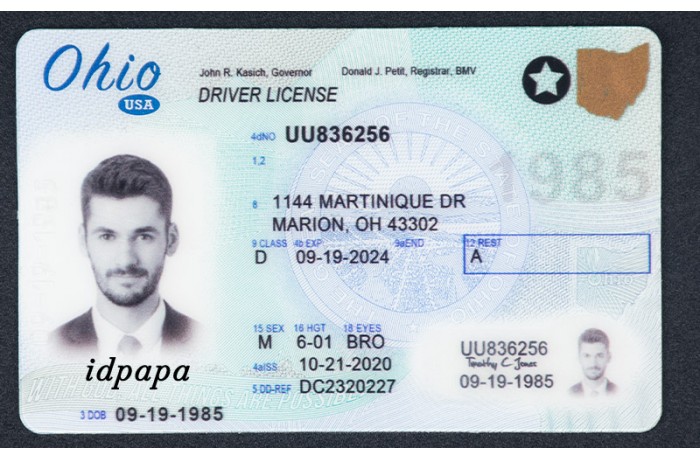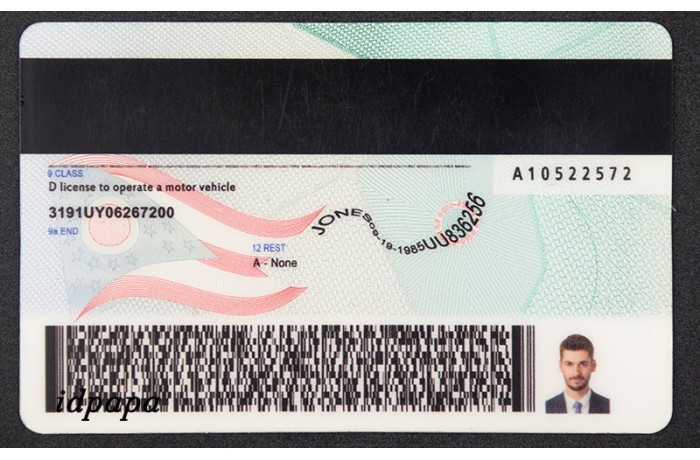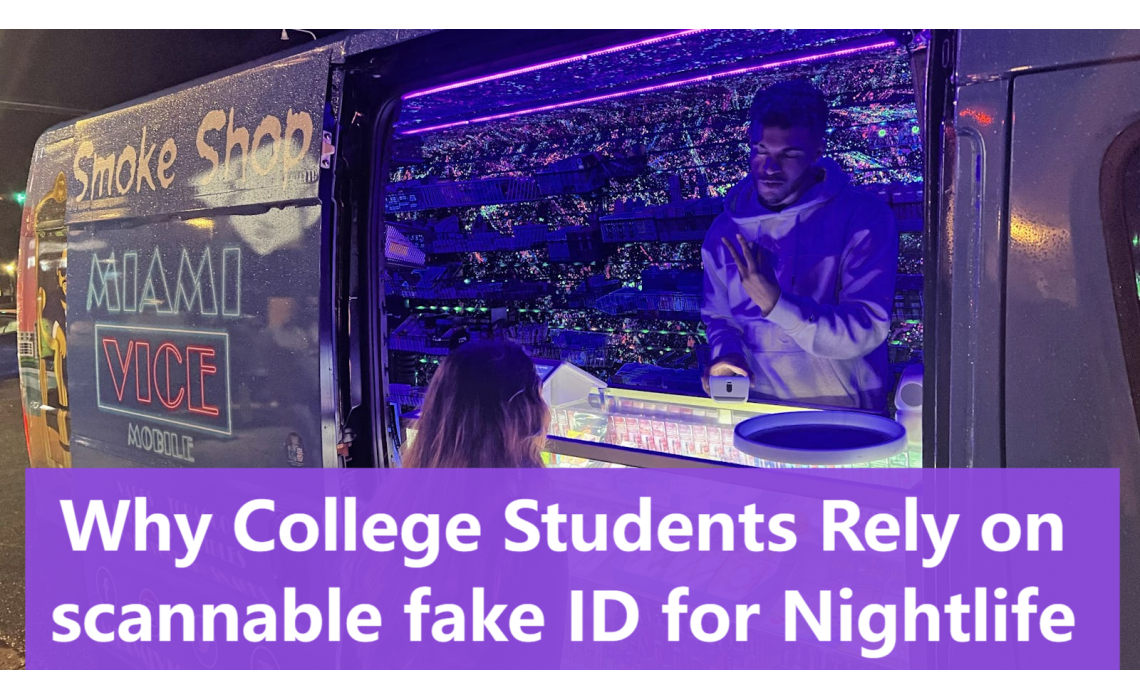Why College Students Rely on scannable fake ID for Nightlife
Why College Students Rely on scannable fake ID for Nightlife

College is a time of newfound freedom, exploration, and social experiences. One of the most exciting aspects of college life for many students is nightlife—clubbing, attending parties, visiting bars, or simply hanging out at places that require age verification. However, gaining access to these spaces often requires a valid form of identification such as a driver’s license or a scannable fake ID for those who are under 21 years.
For college students, having an ID is not just a matter of convenience; it is often a necessity to fully experience the social aspects of college life. Whether it’s for legal drinking age verification, security clearance, or entry into specific venues, a fakeID plays a crucial role in enabling students to enjoy nightlife without unnecessary obstacles.
In this article, we will explore the reasons why college students rely on scannable fakeID for nightlife, the challenges they face, and the impact of identification requirements on student nightlife culture.
1. The Necessity of Age Verification in Nightlife
One of the biggest reasons college students rely on a fake ID is age verification. In most countries, legal drinking age restrictions are strictly enforced in bars, clubs, and alcohol-serving venues.
a. Legal Drinking Age Laws
●In the United States, the legal drinking age is 21, meaning that college students under this age often face restrictions when trying to enter nightlife venues that serve alcohol.
●In other countries, such as Canada or parts of Europe, the legal drinking age is 18 or 19, making it easier for younger students to participate in nightlife without restrictions.
●Many establishments implement strict ID-checking policies to avoid legal penalties, making an ID absolutely necessary for entry.
b. The Role of Bouncers and Security
●Nightclubs and bars employ bouncers who check IDs at the door to ensure compliance with age laws.
●Security personnel may also conduct random ID checks inside the venue to catch underage drinkers.
●Without a valid ID, students may be denied entry or even removed from the venue.
For these reasons, students must always carry an ID or a scannable fake ID if they plan on participating in nightlife events, as most clubs and bars have a zero-tolerance policy for guests without identification.
2. Access to Nightlife Venues

Nightlife is a major part of the college social scene. From fraternity and sorority events to city nightclubs, college students often seek spaces where they can enjoy music, dance, and meet new people.
a. Entry to Clubs, Bars, and Pubs
●Most bars, lounges, and nightclubs require an ID for entry, even if the student does not plan to drink.
●Popular college-town bars often have special student nights where IDs are used for entry verification.
b. College and Greek Life Parties
●Some private events (such as fraternity and sorority parties) may also require an ID at the door to ensure only students or invited guests enter. If you are under the 21 age, order a scannable fake id on idpapa shop.
●Using student IDs in these cases is common, but many Greek organizations prefer government-issued IDs to maintain security and prevent outsiders from crashing events.
3. Security and Personal Identification
Apart from gaining entry into nightlife venues, having a scannable fake ID provides college students with a sense of security and legitimacy.
a. Emergency Situations
●In the event of an accident, medical professionals and law enforcement require proper identification.
●If a student is caught in an altercation or accident at a nightlife venue, having an ID allows security or first responders to identify and assist them properly.
b. Police and Law Enforcement Checks
●Underage drinking laws are strictly enforced in many areas, and students without a valid ID may face additional scrutiny from police officers.
●In some states, random ID checks occur near nightlife districts to prevent underage alcohol consumption.
c. Proof of Identity for Purchases
●Many clubs and bars require an ID not just for entry, but also for purchasing drinks.
●Without proper identification, students may be unable to complete transactions, especially if using a credit card that requires ID verification.
These security-related factors reinforce the importance of carrying an ID whenever participating in nightlife activities.
4. Fake IDs and Workarounds
Due to strict ID policies, some underage students turn to fake IDs to gain access to nightlife venues.
a. The Prevalence of Fake IDs in College
●Many underage students purchase scannable fake IDs to bypass entry restrictions.
●Some students use borrowed IDs from older friends or siblings to gain entry.
5. Alternative Options for Students Without a Driver’s License
Not all students drive or own a driver’s license, but there are alternative forms of ID that can be used for nightlife access.
a. State-Issued Non-Driver’s ID
●A state-issued ID is a valid alternative to a driver’s license and can be obtained through the Department of Motor Vehicles (DMV).
●This type of ID is widely accepted at bars, clubs, and liquor stores.
b. Passport or Passport Card
●A passport or passport card is a government-issued identification document that can be used for nightlife entry.
●However, carrying a passport to a nightclub is not recommended, as it can be easily lost or stolen.
c. Student ID Cards
●Some venues, especially campus bars and college-organized events, allow entry with a university student ID.
●However, most commercial bars and nightclubs require government-issued IDs.
For students who do not have a driver’s license, obtaining a scannable fakeID is the most practical solution for identification purposes.so join a right fake id shop like idpapa.
Conclusion
For college students, a scannable fakeID is essential for enjoying nightlife. Whether it's for age verification, security, or emergency situations, an ID is often the key to accessing bars, clubs, and social events.
As nightlife continues to be an integral part of the college experience, the need for proper identification remains a necessity, shaping the way students navigate social activities, security protocols, and legal compliance in their university years.


